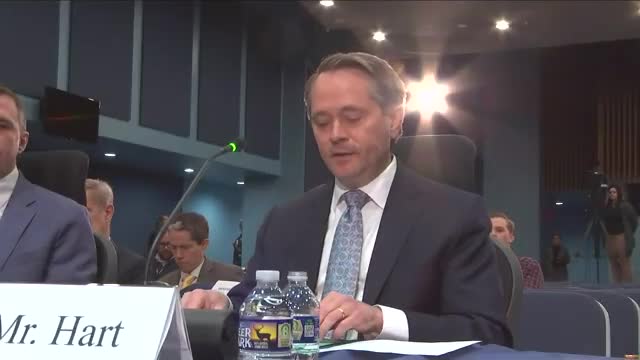Open the Books tells House panel federal agencies spent billions on high‑end furniture and decor
Get AI-powered insights, summaries, and transcripts
Subscribe
Summary
Open the Books presented agency‑level spending data showing billions on furniture since 2021 and cited examples — from embassy artwork to solar picnic tables at CDC — that drew sharp questioning from members.
John Hart, chief executive officer of Open the Books, told the DOGE subcommittee that federal furniture spending has been substantial and, in his view, often excessive.
“At Open the Books, we discovered the high cost of decorating and redecorating the administrative state,” Hart said. He testified that, since fiscal 2021, executive agencies reported more than $4,600,000,000 in furniture purchases and cited examples drawn from procurement records, including artwork at State Department embassies and expensive seating at certain offices.
Hart walked members through procurement examples he and his group identified using usaspending.gov, the public federal spending database created under the Federal Funding Accountability and Transparency Act of 2006. He cited the Centers for Disease Control and Prevention purchase of solar‑powered picnic tables (reported in the hearing at roughly $238,000) and other purchases highlighted as illustrative of what Open the Books considers poor procurement choices during a period of remote work and heavy underutilization of office space.
Members from both parties questioned whether the examples were representative and asked about context such as whether purchases included broader outfitting needs, IT or security requirements, or were tied to mission‑critical operations. Hart said his analysis is based on keyword searches and line‑item spending records and that transparency allows the public to scrutinize those results.
Witnesses and members agreed transparency matters. Hart urged broader use of the public spending database and said increased public oversight could deter what his group calls unnecessary spending. He declined to endorse a specific procurement fix in his five‑minute opening statement but argued that access to line‑item spending records allows for more informed congressional oversight and public debate.
The subcommittee did not adopt procurement reforms at the hearing. Several members said they would use Open the Books’ findings to press agencies for procurement explanations and to explore whether purchases complied with existing rules.
